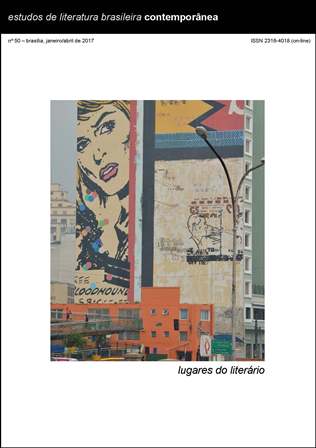Depois do sujeito:
formas narrativas contemporâneas e vida impessoal
DOI:
https://doi.org/10.1590/2316-4018507Abstract
Alguns textos recentes da literatura brasileira propõem como protagonistas uma experiência descentrada e impessoal que já não se manifesta na história de um sujeito presente ante si mesmo, pleno de interioridade e de propriedades, mas que, pelo contrário, escolhe as relações e o espaço entre seres e coisas ”“ o intervalo ”“ como matéria prima da narrativa. Textos escritos como escuta de várias vozes diferentes (como Delírio de Damasco, de Veronica Stigger), ou a partir de um descentramento narrativo fundamental que entrelaça uma multiplicidade de registros (entre o ensaio, o comentário crítico, o testemunho, a ficção e a fotografia), como em História natural da ditadura, de Teixeira Coelho, encontram na instabilidade de discursos e formas outros modos de pensar a experiência compartida e singular. Outros modos de pensar a experiência que, para além do sujeito e para além do indivíduo, é aquilo ao que podemos chamar de experiência do comum.
Downloads
Published
Issue
Section
License
Authors who publish in this journal agree to the following terms:
a) The authors maintain the copyright and grant the journal the right of first publication, the work being simultaneously licensed under the Creative Commons Attribution License-Non Commercial 4.0 which allows the sharing of the work with acknowledgment of the authorship of the work and publication this journal.
b) Authors are authorized to enter into additional contracts separately, for non-exclusive distribution of the version of the work published in this journal (eg publish in institutional repository or as a book chapter), with authorship recognition and publication in this journal.
c) Authors are allowed and encouraged to publish and distribute their work online (eg in institutional repositories or on their personal page) after the editorial process, as this can generate productive changes, as well as increase the impact and citation of published work (See The Effect of Free Access).
d) The authors of the approved works authorize the magazine to, after publication, transfer its content for reproduction in content crawlers, virtual libraries and the like.
e) The authors assume that the texts submitted to the publication are of their original creation, being fully responsible for their content in the event of possible opposition by third parties.


